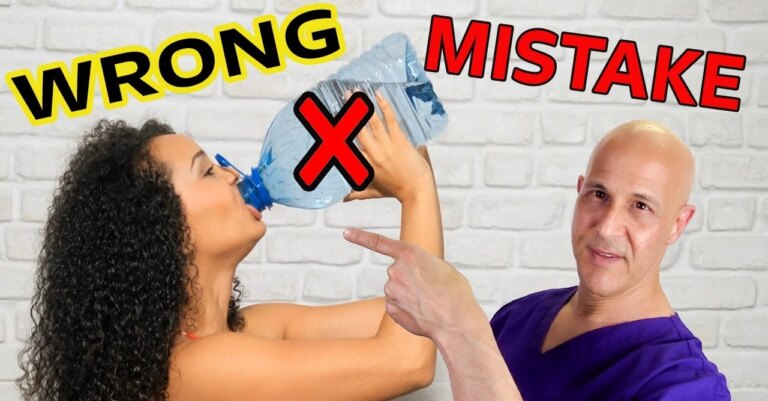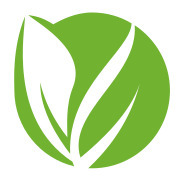Common Mistakes You Want to Avoid When Drinking Water
A very high percentage of our body is made up of water and we cannot survive without it. But there are ideal times that we should not be drinking it because it can potentially harm our health and very seldom we’ll see that water will cause any danger.

So when you’re drinking your water, it’s always best to be safe and to be sorry. Way you’re going to hopefully learn a lot of great information here, but I will go through it real quick. Drinking large amounts of water right before or during intense exercises can cause that discomfort and potentially lead to cramping or gastrointestinal issues.
And if you’re consuming excessive amounts of water during your meals, this can dilute your digestive enzymes and stomach acid, which may hinder the digestion process. And you need that hydrochloric acid to help get calcium into the bones to help digest proteins, as well as many other things, particularly to fight the bacteria in your stomach.
Maybe H. Pylori, commonly known that causes ulcers, but the problem is that when we have less acid, this causes an unequal pressure in our lower esophageal sphincter that can lead to gastric reflux. And drinking water when you’re already bloated or overly full can exacerbate discomfort and make you feel more uncomfortable.
And it’s best that you don’t drink a whole lot of water right before you go to bed because this will lead to more frequent trips to the bathroom during the night, which can disrupt your sleep. And consuming excessive amounts of water within a short period of time can lead to water intoxication, which can disrupt the body’s electrolyte balance and potentially can be dangerous.
And if you’re having heart issues as well as kidney failure problems, drinking too much water can be dangerous to your health. This is when your doctor will advise you the amount of water you should be taken in daily.
And if you’re having any medical procedures or tests that may require you to avoid drinking water for a specific period before that procedure, you want to follow instructions provided by your healthcare provider and be aware of where you live because certain municipalities has more contamination as compared to others.
And be aware that some medications require specific instructions regarding fluid intake. So follow the guidance provided by your healthcare provider or read the medication label for any water related instructions.
If you’re experiencing nausea or vomiting, be aware that drinking large amounts of water can make this condition worse. Small sips may be required, but you want to speak with your healthcare provider. If you’re retaining lots of water in your body, maybe in your ankles, your abdomen, and it’s not related to sodium.
You want to be aware to speak with your medical provider, because drinking more water can make the condition worse. Although if you’ve been retaining lots of fluid, which most of us are, when it comes to eating too much sodium, salt, the hidden salt, it’s going to retain lots of fluid.
That’s when you want to drink more water, because that will get rid of that extra sodium. Or you can add more potassium. Adding more potassium rich foods will lower your sodium levels. And if you’re drinking cold water too fast, just like you’re eating ice cream too fast, you kind of get that brain freeze. And this is believed to be triggered by the rapid cooling of the blood vessels in the roof of the mouth and throat.
And when that cold substance comes in contact with those blood vessels, they will narrow and constrict and then rapidly dilate and widen afterwards. This dilation and constriction is what stimulates nearby nerves, leading to that sensation of pain or discomfort.
If you’re about to do any aerobic exercise, particularly jumping around, running, or jogging, you don’t want that water moving around so much in your stomach because that can definitely cause gastrointestinal upset.
That can cause definitely cramping, bloating, and a lot of discomfort. So be aware that when you’re doing extreme exercises, not so much water at one time. Do it at least 30 minutes before, 30 minutes after. But it’s always good to sip during.
And also be aware that when you’re drinking lots of water, don’t lie down so quick. If you’re going to go in bed, sit up, prop yourself up, put your head and heart higher than the rest of your body. If you lie down, you can get more pressure building up, making its way up the stomach into the esophagus, which can cause more gird.
So many people say, well, how much water should I drink? Well, there’s different theories, and it’s not for everyone, because if you’re spending lots of time in the heat, you’re exercising, your metabolism is higher, you’re going to burn more.
The bottom line is after you’re resting six to 8 hours overnight, yes. You’re going to be more dehydrated. I like to use a little lemon and water, apple cider vinegar and water. If not, just drink a glass or two of water to hydrate your cells.
It will definitely get you going. And they say you should be drinking at least half the amount of ounces of your weight. That’s just a ballpark the bottom line is you don’t want to wait till your brain says you’re thirsty. That’s when you get in trouble.
Because if you’re in a hot environment where you’re having heat exhaustion, which can lead to heat stroke, it may be too late. So don’t wait till you’re thirsty. It’s a good idea to sip water, drink throughout the day. You’ll stay a lot healthier. I hope you enjoyed this video.
Please share it with your friends and family. And most important, make it a great day. I’m Dr. Alan Mandel.
Read more: Blood Pressure 911 – Helps Consumers Reduce Their Blood Pressure
